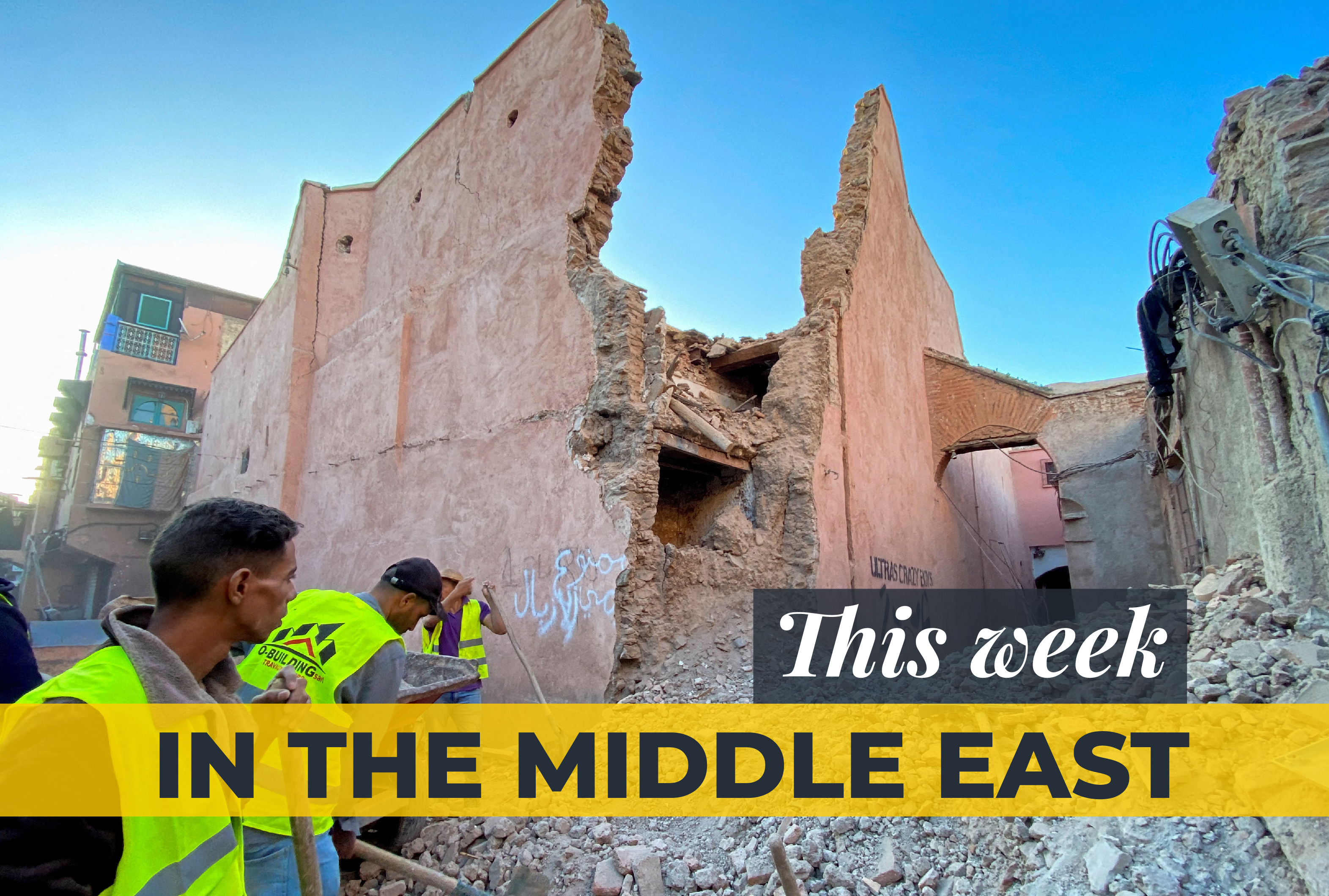
Deadliest quake since 1960 in Morocco | Libya’s biggest environmental disaster in modern history | Three decades since Oslo Accords. Here’s the Middle East this week:
‘Life is finished’ in quake-battered Morocco
In the ruins of the Moroccan town of Tnirte, a Spanish rescue team is sending its sniffer dogs home. The dogs, explains a team member, can only smell the living.
North Africa is reeling from environmental disasters, the first was a magnitude 6.8 earthquake that devastated the Atlas Mountains region around Marrakesh, Morocco.
Whole families were lost to the quake, especially in rural areas. Ahcan Ait Majid, a 70-year-old shepherd, lost his wife of 50 years and two sons as a result of the tremors.
“I’ve never known anything like this,” he told Al Jazeera. “I don’t know what I will do now.”
Morocco has been criticised for accepting only a few offers to help, despite many offers by the international community. An offer of help was extended by Algeria, whose people have shown an outpouring of support despite a diplomatic chill between the countries.
In addition to the lives lost, there is also concern over damage to Marrakesh’s beloved ancient structures, a worry for Moroccan intellectual Hassan Aourid.
Storm Daniel wipes out Libya’s east
In Libya, countless bodies have been washed out to sea around the eastern port city of Derna, an area pummelled by Storm Daniel, causing the collapse of two dams.
The numbers are staggering: more than 6,000 dead, 10,000 missing, 30,000 displaced, while people race to bury hundreds in mass graves.
Satellite imagery shows the extent of the disaster, which in Derna was exacerbated by poor maintenance and infrastructure, says Deputy Mayor Ahmed Madroud.
Oslo Accords, 30 years later
Thirty years ago, Israeli and Palestinian leaders met on the lawn of the White House in Washington to sign a deal many thought was a precursor to peace in the region.
But the Oslo Accords – which earned its architects the Nobel Peace Prize – have accomplished nothing of the sort.
Critics say it was “inherently designed” to serve Israel’s economic and security dominance over Palestinians. Yara Hawari further argues that Palestinian authoritarianism has its roots in the accords.
And now, something different
When the villagers of Morocco’s High Atlas Mountains were stricken by the powerful earthquake, they found a foolproof method to move themselves and materials around: their donkeys.
The nimble-footed animals have been able to pick their way along tracks that are barely visible, loaded with bulging saddlebags and sometimes hauling a person on their backs to boot.

Briefly
- Bahrain prisoners suspend weeks-long mass hunger strike
- Egyptians divided over recent niqab ban at schools
- Israeli Supreme Court holds first hearing challenging judicial overhaul
- Sudanese army kills at least 40 people in a drone attack on Khartoum
- Meta deletes Al Jazeera presenter’s profile after show criticising Israel
Quote of the Week
“One man was pointing at his home. There was a white door that remained standing, and he was telling us that that was the door to his house […] He lost both his sons and his wife. He was screaming because he saw his wife’s abaya under the rubble.” | Al Jazeera’s Stefanie Dekker, reporting on the Moroccan earthquake from the village of Imi N’Tala.







